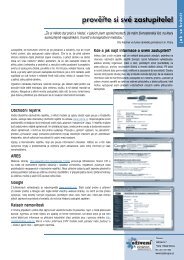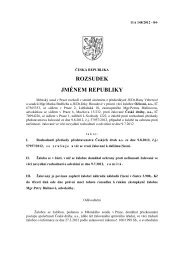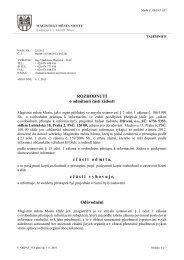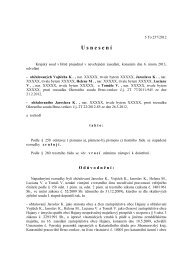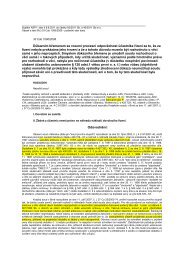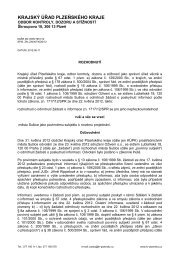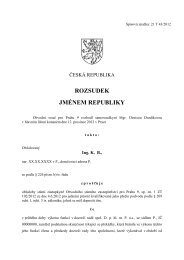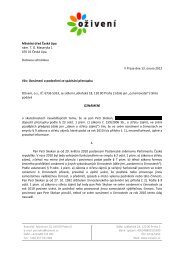Managing Conflict of Interest - Organisation for Economic Co ...
Managing Conflict of Interest - Organisation for Economic Co ...
Managing Conflict of Interest - Organisation for Economic Co ...
Create successful ePaper yourself
Turn your PDF publications into a flip-book with our unique Google optimized e-Paper software.
24 <strong>Managing</strong> <strong><strong>Co</strong>nflict</strong> <strong>of</strong> <strong>Interest</strong><strong>of</strong>ficials very <strong>of</strong>ten come from the private business sector, and returnto it when they have completed their term <strong>of</strong> <strong>of</strong>fice. The rotation <strong>of</strong>people from the private sector into and out <strong>of</strong> government is high.Big business is a major funder <strong>of</strong> election campaigns. “The pursuit<strong>of</strong> the moneyed life,” wrote the sociologist C. Wright Mills, “is thecommanding value, in relation to which the influence <strong>of</strong> other valueshas declined, so men easily become morally ruthless in the pursuit<strong>of</strong> money.” 13 In this cultural climate, politicians and <strong>of</strong>ficials may beall the more susceptible to accepting favors, and private individualsor organizations to <strong>of</strong>fering them.In the nation’s early years, the ideals and altruism <strong>of</strong> the FoundingFathers ensured that those appointed to public position werecompetent and honest. One historian has written that “during the<strong>for</strong>mative years <strong>of</strong> the American national government its public servicewas one <strong>of</strong> the most competent in the world. Certainly it wasone <strong>of</strong> the freest from corruption.” 14This soon changed. Standards in public life declined as thegentlemen and intellectual political leaders <strong>of</strong> the revolutionaryperiod were replaced by self-interested politicians. The partisanuse <strong>of</strong> patronage became standard practice and access to public<strong>of</strong>fice became dependent not on a man’s competence andintegrity but on his political connections. <strong>Co</strong>ntrary to the premisethat democracy favors good governance, in the US case in the19th century the spread <strong>of</strong> democracy seems to have had theopposite effect. When a re<strong>for</strong>ming minority proposed re<strong>for</strong>ms inthe civil service so that appointments would be made by competitiveexamination, these were routinely opposed as being elitistand antidemocratic. 15Civil service re<strong>for</strong>m at the federal level was eventually enactedin 1883, but this did not affect the politicians. The railroad boom,the concentration <strong>of</strong> economic power in the “robber barons,” thedominance <strong>of</strong> self-interested party bosses, and other factors led13Mills, C. Wright. 1952. A Diagnosis <strong>of</strong> Our Moral Uneasiness. New York TimesMagazine. Reprinted in Power, Politics and People. New York: BallantineBooks.14Van Riper, Paul. 1958. History <strong>of</strong> the United States Civil Service. Evanston,Illinois.15H<strong>of</strong>stadter, Richard. 1963. Anti-intellectualism in American Life. VintageBooks.ADB/OECD Anti-<strong>Co</strong>rruption Initiative <strong>for</strong> Asia and the Pacific






